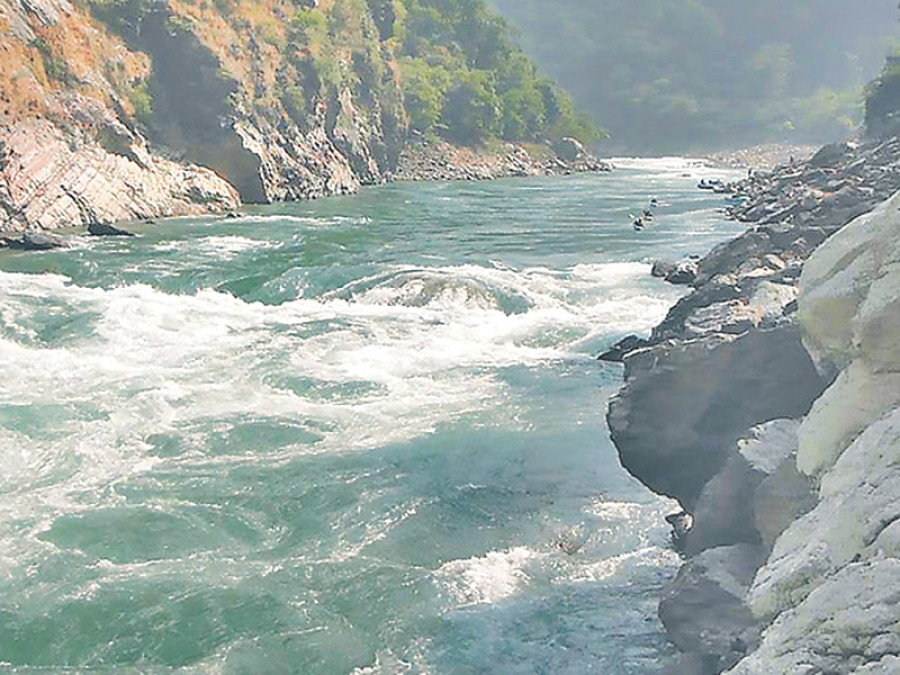Miscellaneous
Project doomed after Chinese company turns down proposal
The West Seti Hydroelectric Project has all but collapsed after the Chinese developer turned down the government request to execute the project citing financial infeasibility.
Bibek Subedi & Mukul Humagain
The West Seti Hydroelectric Project has all but collapsed after the Chinese developer turned down the government request to execute the project citing financial infeasibility.
The all-important two-day meeting between Investment Board Nepal (IBN) and China Three Gorges International (CTGI) ended inconclusively on Wednesday, with the latter expressing inability to move ahead despite assurance from the government on capacity optimisation and US dollar power purchase agreement.
While the investment board has not categorically said the deal with the Chinese company is over, senior officials who spoke to the Post say this as the end of Chinese company’s involvement in the West Seti project.
“We failed to conclude the negotiation,” said Maha Prasad Adhikari, the CEO of the investment board. “We will take the issue to the board, which is chaired by the prime minister, who will make the final decision.”
Whether or not the Chinese company will completely pull out of the project now entirely depends on Prime Minister KP Sharma Oli, and if he agrees to all the terms raised by the Chinese developer. Officials wouldn’t say if there were chances for such reconsideration.
The government side was flexible on addressing two major issues of the Chinese developer—dollar PPA and the downward revision of the project’s installed capacity. Officials present at the meeting said the Chinese developer did not show any intent to carry forward the project. Instead, the issue of resettlement and rehabilitation was brought forward by the Chinese company which it termed would be expensive and unpredictable.
In a bid to make the project feasible, the investment board even made an offer to the representatives of the Chinese company, going beyond the guidelines issued by the government for the dollar-denominated power purchase. The official guidelines say the payment to the developer is made in convertible currency for a period of 10 years or until the time the project pays back the foreign debt, whichever is earlier.
The investment board had offered to increase the period to 12 years for the West Seti project. The IBN also offered to downsize the project capacity to 600MW from 750MW.
Finance Minister Yubaraj Khatiwada and Energy Minister Barsha Man Pun, with whom the Chinese developer met on Wednesday afternoon, were also accommodative towards the CTGI’s concerns. Both ministers told the developer they are still open to further discussion on the issues, including the issue of the market for the energy generated from the project.
IBN sources told the Post the Chinese developer’s decision is purely based on commercial aspect. “Since it did not see a handsome return from the project, it gave a cold response to the government’s request,” one Nepali official said.
“They [CGTI] told us resettlement cost would be high and unpredictable,” the official added. “Given the unnatural demands the people of project-affected areas often put, they said it would increase the overall cost of the project.”
The Chinese developer said over 10,000 families need to be resettled if the project is constructed while the number was around 2,500 when it signed the MoU with the government in 2012. This, according to CGTI, would increase the overall project cost by 10 percent. They were also concerned about the transmission line that would connect the electricity produced from the project to the national grid. The unsuccessful negotiation with the Chinese company is yet another chapter of the West Seti saga. The Chinese company had entered into the scene after the government in 2011 scrapped the licence of West Seti Hydropower Company Limited, in which Australia’s Snowy Mountain Engineering Corporation had a majority stake.
The West Seti Hydropower Company held the survey licence of the project for 15 years before the Jhalanath Khanal-led government scrapped it in 2011. The project was originally designed as export-oriented, with plans to sell 90 percent of the power to India. However, the West Seti company failed to move ahead with the construction, mostly because of its failure to manage the funding. In January 2011, the company had proposed developing the project under the Public Private Partnership model and sought an extension of the deadline for financial closure of the project.
Nepali officials told the Post CGTI representatives have said the company would honour the decision of the IBN board. China Three Gorges International could not be reached for comment.




 9.7°C Kathmandu
9.7°C Kathmandu










